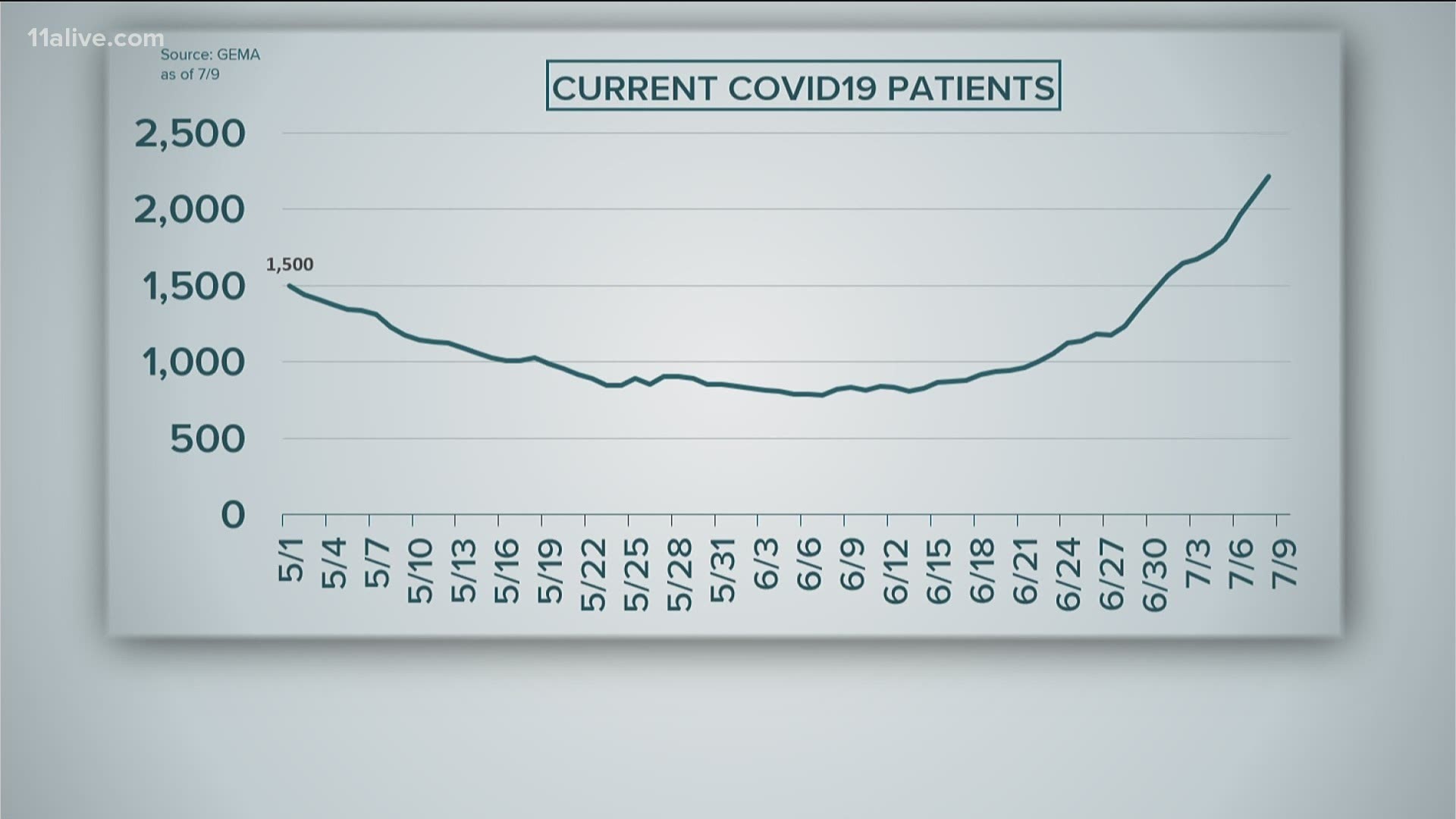ATLANTA — The Georgia World Congress Center is being reactivated as a COVID-19 overflow facility, the governor's office said Friday.
The GWCC had been cleared of hospital beds that, it turned out, were not necessary during the first significant surge of the pandemic in Georgia.
Now, though, with hospitals filling up and both healthcare professionals and Mayor Keisha Lance Bottoms warning of the system being overrun by COVID-19, Gov. Brian Kemp is reconfiguring the GWCC site once more.
"To address ongoing capacity needs, Governor Kemp and state officials will reactivate the Georgia World Congress Center (GWCC) utilizing state-owned assets – hospital beds, medical equipment, etc. – procured at the Governor’s direction through the Georgia Emergency Management and Homeland Security Agency earlier this year," a release from the governor's office on Friday said.
The governor's office added that before it turns to the GWCC for "standby" beds, it will have a contract fulfilled with an unnamed area hospital to provide roughly 100 additional medical surge and ICU beds.
The statement from the governor's office stressed calm in its statement as both ICU bed and general in-patient bed availability dipped to 17% in Georgia yesterday, according to GEMA figures.
It said the current patient profile is younger than during the first surge and improvements doctors have made in treating COVID-19, such as with drugs like remdesivir, mean shorter hospital stays.
A portion of the current hospital strain is also because, unlike during the first surge, many more people are going to hospitals for elective procedures and surgeries at the same time more COVID patients are coming in. In April and May, almost no such procedures were performed.
The governor's office said hospital executives had expressed their wish to continue performing those procedures as they enact surge capacity plans to deal with the rapid increase in COVID patients.
"On a daily – if not hourly – basis, we are monitoring hospitalizations by region, and the Governor continues to hold weekly conference calls with hospital executives to gauge needs. At this time, we are seeing increased hospitalizations, but the patient profile is much different than that of early spring," the statement said. "Patients are younger, cases are less acute, and treatment improvements – with advances like remdesivir – have halved the average hospital length of stay from fourteen to seven (or fewer) days. Based on the Governor’s most recent call with hospital executives earlier this week, there is strong consensus among healthcare facilities that they wish to continue elective procedures to promote Georgians’ health and well-being while avoiding more financial distress and potential furloughs."
MORE CORONAVIRUS HEADLINES

